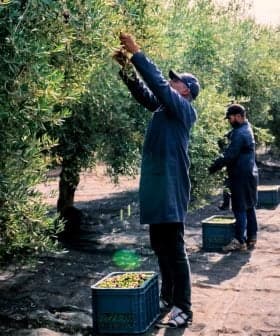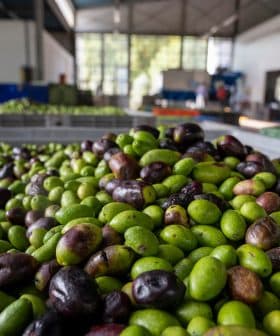Passenger Plane Flies 560 Kilometers Using Recycled Cooking Oil
In what the airline referred to as a "perfect carbon-neutral" flight, a British Airways Airbus A320neo flew from London to Glasgow powered by a mix of 35 percent recycled cooking oil and conventional jet fuel.
 Airbus A320neo
Airbus A320neo British Airways completed its first passenger flight using recycled cooking oil, resulting in a 62 percent improvement in emissions reductions compared to a decade ago. While the flight was carbon-neutral, not all experts agree that sustainable aviation fuel is a scalable long-term solution for reducing carbon emissions in the aviation industry.
British Airways has successfully completed its first passenger flight using recycled cooking oil.
In what the airline referred to as a “perfect carbon-neutral” flight, BA’s Airbus A320neo flew from London to Glasgow powered by sustainable aviation fuel comprising a mix of 35 percent recycled cooking oil and conventional jet fuel.
The sustainable fuels available today are not a scalable solution for the industry. To suggest that this a long-term path to decarbonize aviation would be misleading.
The company said that the rest of the emissions were offset using “high-quality, verified carbon offsets.”
“This flight offered a practical demonstration of the progress we’re making in our carbon reduction journey,” Sean Doyle, the company’s chief executive, said. “By working together with our industry partners, we’ve delivered a 62 percent improvement in emissions reductions compared to a decade ago.”
See Also:Climate Change CoverageThe airline said the combination of fuel, optimal flight paths, the newest plane and electrified airport vehicles reduced carbon emissions drastically in an effort to decarbonize ahead of the upcoming COP26 summit taking place in the United Kingdom.
Only one engine was used to taxi along the runway for takeoff and the second engine was turned off after landing. To increase efficiency further, aircraft computer systems worked out the ideal flying altitude for fuel while factoring in wind, and plane climb speeds.
While the BA1476 flight still produced 6.4 tons of carbon, the airline said it contributed 62 percent less than a similar journey 10 years ago.
BA said the carbon-neutral flight improvement was achieved by using a more efficient aircraft and sustainable fuel. For the London to Glasgow flight, the airline used an Airbus A320neo, “the quietest and most fuel-efficient short-haul aircraft” in its fleet.
While most of the factors involved in making the carbon-neutral flight successful are not always present and British Airways customers should not expect such flights any time soon, the airline sought to demonstrate that achieving net zero-carbon emissions is possible by 2050.
“This marks real progress in our efforts to decarbonize and shows our determination to continue innovating, working with governments and industry, and accelerating the adoption of new low-carbon solutions,” Doyle said.
John Kaye, the chief executive of Heathrow International Airport, said BA’s flight demonstrated that solutions for net-zero carbon emissions exist, but still need to be scaled up.
However, not everybody agrees with BA’s approach.
“It’s important to realize with sustainable fuels that these are net emissions,” said Cait Hewitt, the policy director of the Aviation Environmental Federation. “You still get as much CO2 coming out of the back of the aircraft as you do with conventional fuels.”
“The sustainable fuels available today are not a scalable solution for the industry,” she added. “To suggest that this a long-term path to decarbonize aviation would be misleading.”
Share this article









